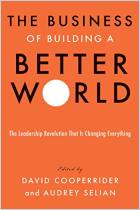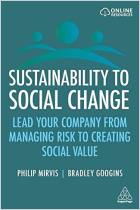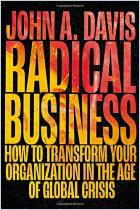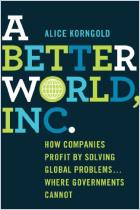Acclaimed environmental journalist Esha Chhabra explores how regenerative businesses are moving beyond sustainable practices to actively restore natural ecosystems and human dignity. Whether it’s supporting female farmers in Ghana or reducing food waste in the UK, Chhabra demonstrates how regenerative entrepreneurs are succeeding and struggling to induce positive change. It’s time to rethink business as usual, writes Chhabra, and her nuanced reporting about this innovative space charts the way.
Regenerative enterprises seek to restore nature and human dignity through their innovative business models.
Conventional businesses tend to downplay social and environmental costs to maximize shareholder profit. Regenerative businesses, on the other hand, prioritize social and environmental agendas as their primary purpose. By giving primacy to challenges like gender inequality and food waste, they generate profits that are transparent to consumers and shared with stakeholders.
Business has the power to affect the enormous challenges facing humanity, including social justice, climate change, water shortages and famine. But it will take more than lip service made up of mission statements and inspirational quotes.
The leaders of regenerative companies are rethinking business from the ground up, challenging the notion of profit-making as the corporation’s primary purpose. Regenerative entrepreneurs instead seek to uphold the values of transparency, simplicity, compassion and equity, while tackling global problems such as soil quality, health care access and renewable energy.
Soil quality is rapidly declining, but eco-friendly business practices are helping...
Esha Chhabra is a lauded journalist, who covers the ascent of authentically sustainable, purpose-driven brands. She has received numerous fellowships from the Pulitzer Center on Crisis Reporting. Chhabra’s work has appeared in The Guardian, The New York Times, The Washington Post and The Atlantic, among many other outlets.































Comment on this summary or Diskussion beginnen